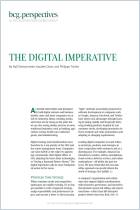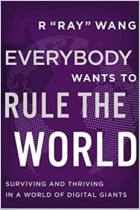
Read offline
Recommendation
Digital ecosystems represent more than a fad. Complex, powerful and boundary-breaking, they’re facilitating rapid innovation and forcing companies to re-envision themselves. Given the speed and complexity of their development, digital ecosystems are also challenging executives and analysts to understand the inherent dynamics. For this concise but insightful article, researchers at the Boston Consulting Group studied 44 ecosystems across 12 sectors to discover the factors that correlate with success.
Summary
About the Authors
Michael G. Jacobides is the Sir Donald Gordon Professor of Entrepreneurship and Innovation and a strategy professor at London Business School. Nikolaus Lang is a managing director and senior partner at Boston Consulting Group, where Nanne Louw is a principal and Konrad von Szczepanski is a managing director and partner.






















Comment on this summary or Iniciar a Discussão